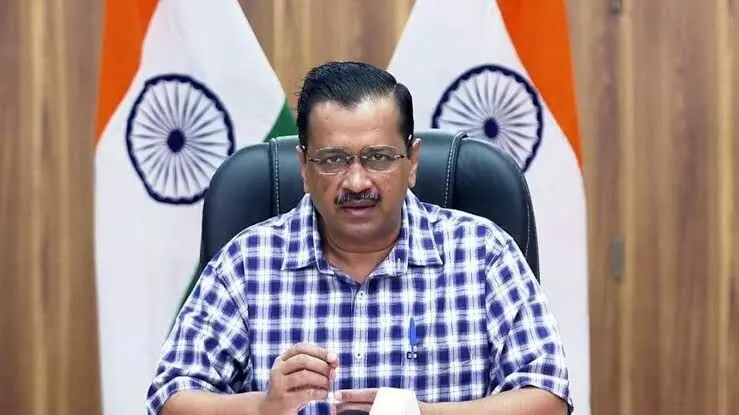
Don't push the country into darkness
text_fieldsFor whom does the government toil? Whose sufferings reach the distant ears of the Narendra Modi-led BJP government on Delhi - the day-to-day distresses of the common man or the woes of corporate monopolies? The answer to this question is most unlikely to be the second, going by how things move now. In the first term of the Modi government demonetization was launched and it upended every bit of the lives of the most common of common men. Then came GST that compounded the common man's suffering. With the advent of the Covid-19 pandemic, India was pushed into an even more desperate state. That the government was not unduly concerned about keeping the population out of the clutches of the deadly pandemic is evident from the failure of its many precautionary policies like the imposed lockdowns. From then on, every measure of solution was without any sense of direction, as evidenced by experience. And even then, the BJP government showed little to no hesitation in using the pandemic to suit their own twisted political agenda.
The Indian state has ignored the very real concerns of the Indian populace, now pushed further into poverty in favour of lining the wallets of corporates. As the common man faces the heat of steadily rising petrol and diesel prices, it is corporate monopolies that ultimately benefit. Thus, showing no concern for the farmers protesting against the farm laws, the government is trying to prolong the strike indefinitely and to bring it to a mercy killing. Even as ordinary Indians struggle to carry on with life as normal, the government is attempting to polish its image by selling off as much of the public sector as it can. When the government and the country are striking out in oppodirections from each other like this, crucial governance ceases to exist, and the country and citizenry get hurled into more problems. There is no clearer sign of these times than the threat of darkness before us. 60% of electricity is generated by thermal power plants that depend on mined coal to function, but as per reports due to shortage of coal are forced to stop generation. The states of Delhi, Rajasthan, Punjab, Uttar Pradesh, Gujarat, Andhra Pradesh, Tamil Nadu are facing the very real possibility of complete blackout, leading to worry for their governments. Punjab has already begun partial load-shedding, while Rajasthan and UP are expressing similar apprehensions. Kerala too is not out of danger. Electricity Minister K. Krishnan Kutty had pointed out that the state too would face load-shedding if the 1000 MW from the Centre and various other states' shares of electricity remained undelivered. Even in the midst of such a dire crisis, the BJP government is only blindfolding the populace with assurances that no crisis is occurring at all. In the midst of this, the Centre is, as being done in the issue of fuel price blaming the rising prices of coal around the globe and the climate too. Yet the Coal Minister has proclaimed that coal production is like the coming and going of the monsoon and that production had in fact increased in the September-October period!
The Union Electricity minister has assured us that compared to previous seasons there has been major increase in the production and supply of coal during September and October. According to him, for the next three or four days nothing is terribly wrong. That it is the re-opening of the economy after the pandemic that has caused a rise in demand in what would otherwise be a low-demand monsoon season where coal was always in shorter supply and that everything will be back to normal after October. He claims that there is no shortage of power to distribute to the states. In the same breath he mentions that normally coal for 17 are kept in stock during the seven months between November and June. So when the Coal minister says there are only supplies for 3-4 days then it is clear that a shortage is present. But Delhi government reminds that the very same promises had been made by the Centre about oxygen supplies but Indians were left gasping for a single breath during the second wave of the pandemic. The Gas Authority of India Limited (GAIL), a government agency and Tatas gave misleading information, claims Union Energy Minister R.K Singh. Then what is the truth? Can we sustain the usual seasonal situation? Can the Central government give any kind of clarity and reassurance to the state governments and the citizens on this matter? Or will this situation too, go the same way as the empty promises made about oxygen supplies and demonetization earlier? The Centre urgently needs to clear such doubts through word and deed. The people of India should not be kept in the dark with empty proclamations; instead the government should strive to enlighten them on the concrete solutions to the problems.

























